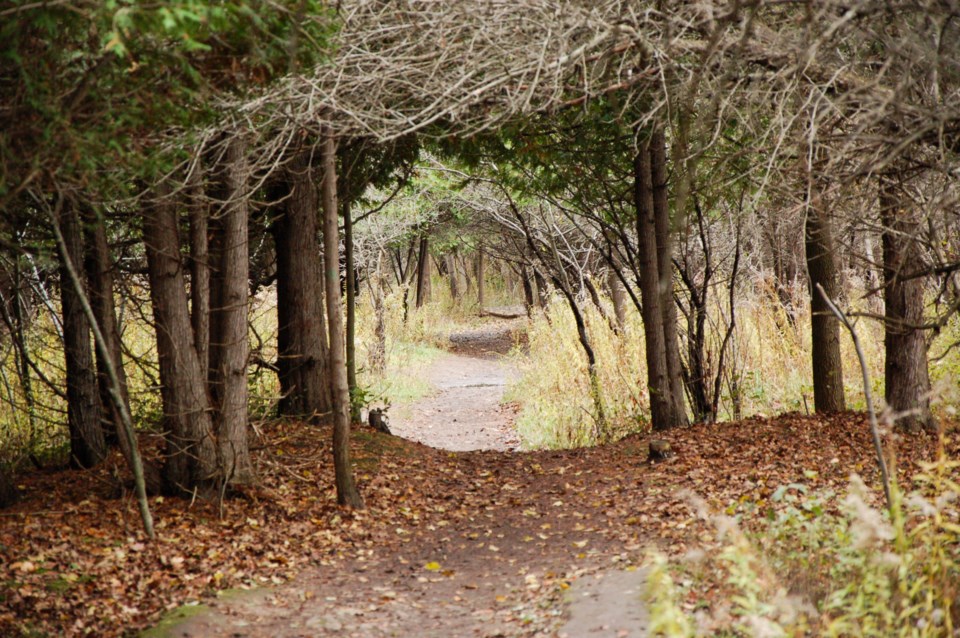In the face of a parkland shortfall, rising population and increasing interest in the outdoors, city council must stop the practice of accepting cash-in-lieu of parkland from developers rather than land itself.
That message was repeatedly delivered by nearly 20 delegates to council during a special meeting on Wednesday, held to gather feedback on plans to implement a Community Benefit Charge (CBC) on high-density builds as well as changes to the parkland dedication bylaw.
“To sell our natural heritage for a quick buck is to sell the health and spiritual health of our children and grandchildren,” said John Lawson. "I urge you ... protect the full allotment of land for natural areas and parkland in our city."
“These are spaces that bring people together,” added 16-year-old Lily Merrill, noting it’s key to the physical and mental health of residents.
Council officially referred the matters to its July 18 meeting for a potential decision, following public consultation regarding the CBC and a staff report with recommendations.
A virtual open house set for April 27 and an online survey to run between April 19 and May 3.
In a report to its committee of the whole last week, council learned the city is hard-pressed to grow its parklands by the estimated 174 hectares needed by 2051 to accommodate the city’s growing population.
“Acquiring this amount of land while balancing mandated growth targets without creating significant impacts to city financial planning, built form, building height, and density is likely not achievable,” the report states.
Approved development applications and secondary plans contain about 58 hectares (143 acres) of parkland, but that’s not included in the needs calculation, elevating the total requirement to more than 230 hectares (568 acres).
The city currently has about 400 hectares (988 acres) of parkland, which includes city parks of various sizes, school properties, conservation areas, the University of Guelph and arboretum lands, open spaces, stormwater management ponds and trails, as well as natural heritage and river systems. This, the staff report states, equates to “about two parking spaces of parkland per person.”
Several delegates urged council re-evaluate what’s considered parkland to ensure recreation centres and parking lots aren’t included.
Ninety-two per cent of Guelph residents live within a 10-minute walk of a park, considered to be 500 to 800 metres, which is 10 per cent higher than the national average.
City staff suggest the parkland dedication bylaw update is largely “administrative” in nature, largely due to provincial legislation changes, and isn’t currently recommending changes to the rate, however it was acknowledged council can move forward with changes if it wishes.
“Growth in this province is a ponzi scheme,” commented delegate Susan Watson, who suggested the bills are coming due and there isn’t money in the bank to pay. “At the end of the day, citizens are still the losers and we’re the ones on the hook.”
She and others noted cash loses it's spending power over time while the value of land keeps rising.
In an effort to address the growing parkland need, Coun. Mark MacKinnon asked staff to look into changing the formula from a per-unit fee to a fee that changes depending on the size of unit. This, he suggested, could be used to incentivize the creation of smaller, less expensive homes.
The councillor also questioned staff about whether physical land dedications must be on the project site, to which staff noted off-site arrangements are possible.
Coun. Rodrigo Goller announced he plans to ask for land conveyance caps to be removed or moved up so the city collects more parkland and/or cash-in-lieu. There’s currently a 20 per cent cap in Downtown Guelph and 30 per cent cap elsewhere in the city.
“I think we have a good legacy to maintain here in Guelph,” he said.
Mayor Cam Guthrie floated the idea of phasing in a cap increase.
Implementation of a CBC is estimated to generate $547,700 annually for the city, depending on the timing of developments, and can only be applied to high-density residential projects. Those funds can be put toward funding long-term capital initiatives but cannot fund any effort entirely, a staff report explains.
If ultimately approved, the CBC and new parkland dedication bylaw is to come into effect on Sept. 18.
Around that same time, changes in provincial legislation mean the city will no longer be allowed to collect all the development charges it does today. The city won't be able to collect development charges to put toward parking projects and some other things, reducing revenue by about $750,000 per year.
Between the DC changes and new CBC, the city will be “slightly worse off” in recouping the cost of growth, noted Gary Scandlan of Watson and Associates Economists Ltd.
“I think at the end of the day we’ve lost revenue,” he told council.
